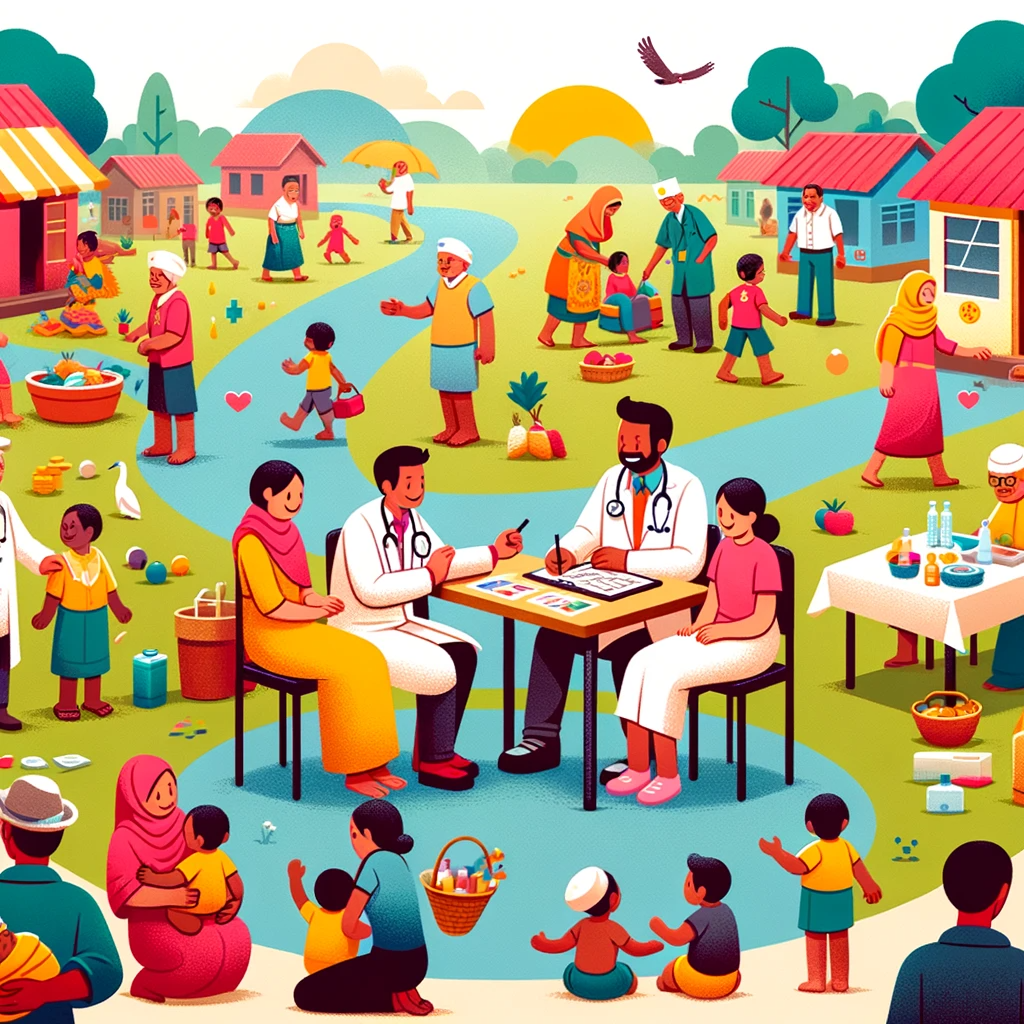
Bridging Health Gaps: The Role of Community Health Workers
In an era where universal health coverage and the health-related Sustainable Development Goals (SDGs) are at the forefront of global health initiatives, understanding the role of Community Health Workers (CHWs) becomes imperative. The article “Who is a community health worker? – a systematic review of definitions” published in Global Health Action explores this topic, offering valuable insights into the diverse roles and definitions of CHWs.
The Global Health Workforce Crisis
A decade ago, the World Health Organization (WHO) identified a global health workforce crisis marked by severe shortages and skill mismatches. This shortage is most acute in rural areas and low- to middle-income countries, particularly in sub-Saharan Africa. CHWs have emerged as a vital component in addressing this crisis, especially in areas with limited access to basic healthcare services.
The Diversity and Roles of CHWs
CHWs are crucial in bridging the health equity gap, particularly in hard-to-reach areas. However, their diverse roles and inconsistent naming conventions challenge policymakers and researchers. Some CHWs receive informal training, while others undergo formal training in recognized institutions. Their roles range from health promotion and disease prevention to treating basic conditions and collecting health data.
The Selection and Training of CHWs
CHWs are often chosen based on community membership, language skills, and cultural knowledge. Their training varies significantly, from short-term informal training to more structured programs in formal institutions. This diversity reflects the varying needs and contexts in which CHWs operate.
Remuneration: A Key Consideration
An interesting aspect of CHWs’ roles is their remuneration. While some work voluntarily, others receive allowances or formal salaries. The level of remuneration often correlates with their educational background and the nature of their training.
Implications for Public Health Practice
The article underscores the importance of a systematic approach to defining and categorizing CHWs. This clarity is crucial for designing roles within multidisciplinary health teams and for policy making. By understanding the diverse competencies of CHWs, health program planners can more effectively integrate them into the health system, ensuring that they complement other health professionals and fill critical gaps in service delivery.
Conclusion: A Call for More Research and Policy Development
The article calls for further research into sustainable remuneration models for CHWs, particularly those who are unpaid or receive short-term allowances. This research is vital for the long-term satisfaction, commitment, and retention of CHWs, ensuring that their training and development investments yield the desired outcomes in community health.
CHWs are indispensable in the quest for universal health coverage and the achievement of the SDGs. Their diverse roles, selection criteria, training, and remuneration reflect the complexities of healthcare delivery in various contexts. Policymakers, health planners, and researchers must develop a unified understanding of CHWs’ roles to maximize their impact on public health.
“Be the Health Change-Maker – Get Informed Weekly!”
Step into the role of a public health change-maker with ‘This Week in Public Health.’ Each issue brings you closer to the heartbeat of community health, innovative research, and advocacy. It’s more than news; it’s a platform for transformation. Subscribe for free and join a community of informed individuals driving positive change in public health every week!



